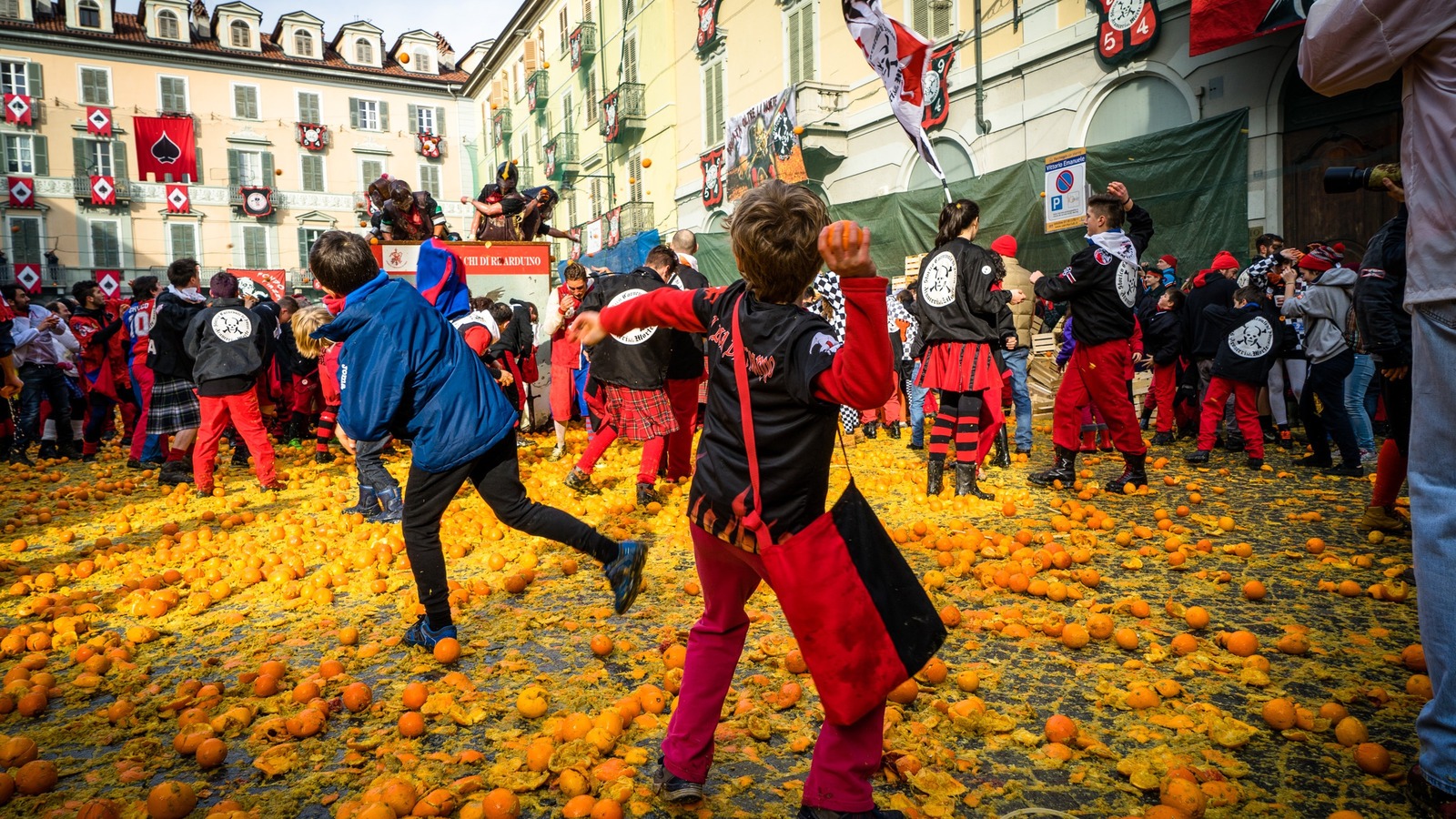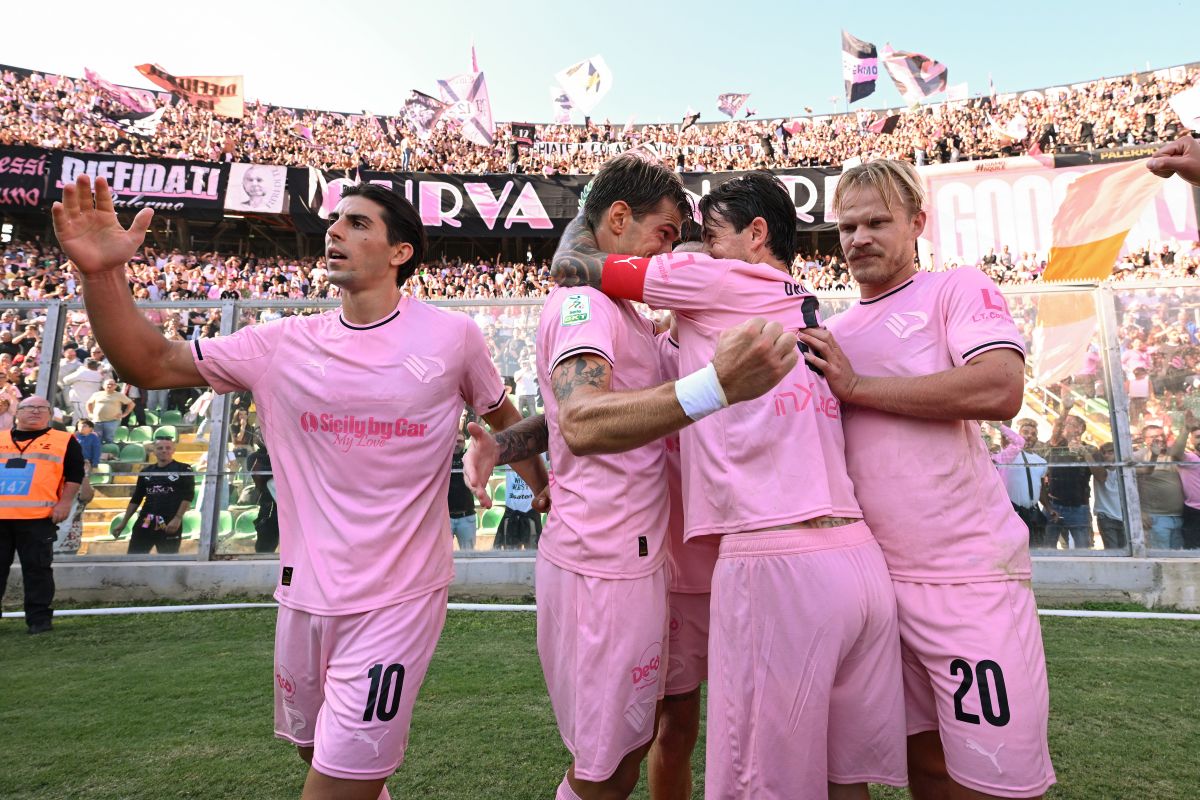
Classic Calcio: Torino 3-2 Juventus, March 1983
By Dan Cancian
There are dates fans never forget. There are days when three minutes can last an eternity, change the course of a season and write history.
In the rich and dramatic tapestry of the Derby della Mole, nothing has quite come close to the 142 seconds that turned the fixture on its head 42 years ago this Thursday.
Giuseppe Dossena cut a disconsolate figure as he spoke to RAI’s reporter Carlo Nesti while walking back towards the dressing room at half-time at the Stadio Comunale.
“We have gifted them a goal,” he conceded.
“All our plans have gone out of the window now. All we can do is try and get back in the game.”
Wishful thinking? Perhaps. After all, Dossena and Torino knew all about spectacular comebacks in a derby.
In fact, they had been on the receiving end of one just 12 months earlier, when Alessandro Bonesso and Dossena had put the Granata two goals to the good after 22 minutes before Marco Tardelli and Gaetano Scirea wiped out the lead with two in four minutes.
The most unlikely of goalscorers, Scirea added a second before half-time, and Liam Brady completed a memorable comeback in the 89th minute.
The Irishman would score a far more important goal two months later, as Juventus beat Catanzaro on the final day of the season to pip Fiorentina to the Scudetto by a point.
A year on, the Bianconeri had their work cut out for themselves to make it three titles in a row – and 21 overall – as they trailed league leaders Roma by three points – in the two points for a win era – with six matches left.
But as Zbigniew Boniek had bullishly suggested before the derby, Juventus had bigger fish to fry with a European Cup semi-final less than two weeks away after trouncing Aston Villa 5-2 on aggregate in the quarter-finals.
“Playing Widzew Lodz in the European Cup will be a far bigger challenge,” was the Pole’s cocksure prediction.
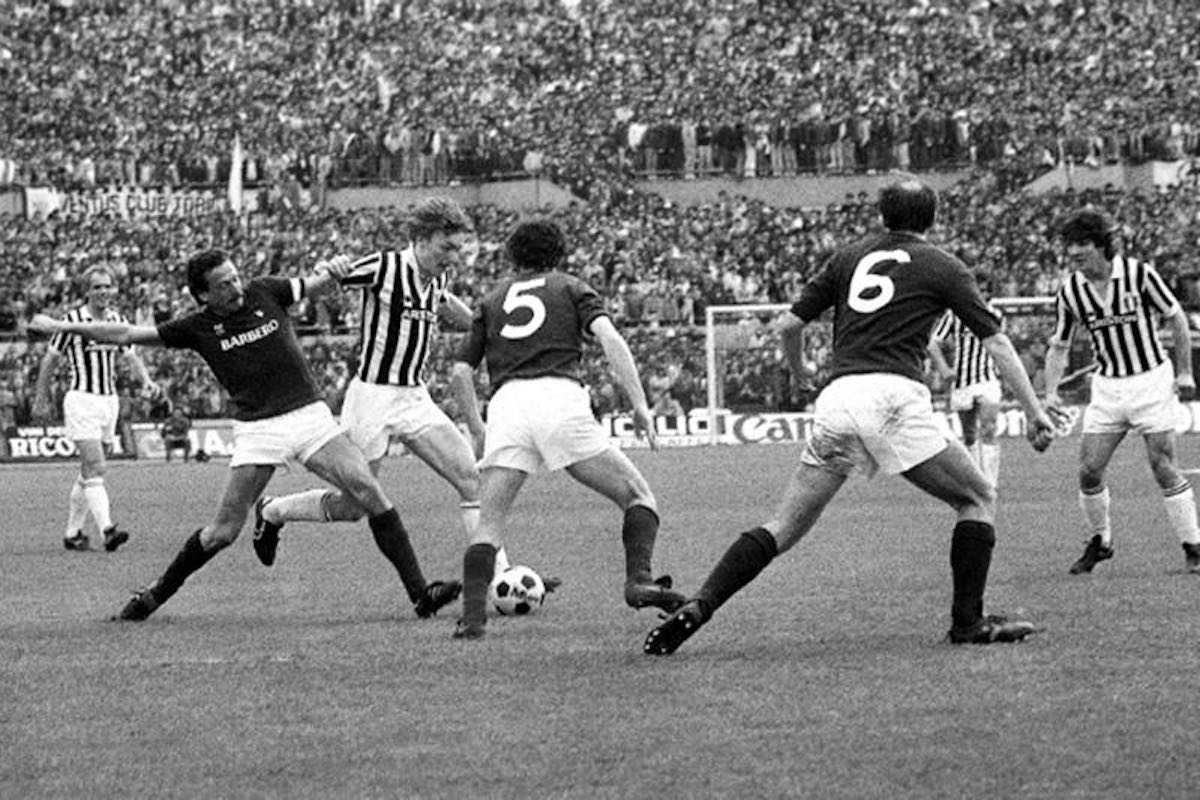
Boniek’s forecast seemed to prove prescient as Paolo Rossi put Juventus ahead with typical opportunism just 15 minutes into the contest.
The Golden Boot winner at the 1982 World Cup seized on a sloppy back pass from Torino right-back Michel Van de Korput and nutmegged goalkeeper Giuliano Terraneo to give the Bianconeri the lead.
Halfway through the second half, Terraneo almost redeemed himself as he saved Michel Platini’s penalty before the Frenchman nonchalantly tucked in the rebound.
Having scored the only goal of the game in his Derby della Mole debut five months earlier, the Frenchman already looked to have become Torino’s bete noire.
A summer signing from Saint Etienne, the mercurial Frenchman was a direct replacement for Brady and joined a team that had won the Scudetto four times in the previous five seasons.
Platini was the crown jewel of an already stellar cast.
Juventus’ starting XI at the Comunale included six players who had started the World Cup final eight months earlier in Dino Zoff, Antonio Cabrini, Claudio Gentile, Scirea, Tardelli and Rossi.
Fellow summer signing Boniek, meanwhile, had helped Poland to finish third at the World Cup. This was a side intent on dominating domestically and further afield.
By contrast, Dossena was Torino’s only representative in Enzo Bearzot’s squad in Spain. After winning their seventh and hitherto last Scudetto in 1976, the Granata had finished second and third in the following two seasons and third again in 1980.
But two consecutive ninth-place finishes in the next two campaigns spelt the end for the team of Francesco Graziani and Paolo Pulici, the Goal Twins leaving for Fiorentina and Udinese, respectively.
Renato Zaccarelli remained as the link to the Scudetto-winning team, but the arrival of Eugenio Bersellini in the summer of 1982 ushered in a new era.
In came newly-crowned world champion Franco Selvaggi from Cagliari and fellow centre-forward Carlo Borghi from Catanzaro, while Fortunato Torrisi and Paolo Beruatto arrived from Ascoli and Avellino.
The elegant sweeper Roberto Galbiati joined from Fiorentina after racking up over 110 Serie A appearances in four seasons with La Viola and Argentina international Patricio Hernandez joined from Estudiantes to add creativity to the Granata’s midfield.
None of it seemed to matter as Juventus cruised to a 2-0 lead with 65 minutes played, and the 100th Derby della Mole in Serie A seemed to be petering out into a routine win for the Bianconeri, just as Boniek had predicted.
But between the 70th and the 75th minute, Torino scored three times. Dossena and Bonesso, like 12 months earlier, were on the scoresheet before Torrisi completed the most exhilarating of comebacks.
“Just saying ‘three goals in five minutes’ doesn’t do it justice,” Torino captain Zaccarelli reflected.
“You have to picture it. Goal, they get the ball, we win it back. Goal, they get the ball, we win it back. Goal.”
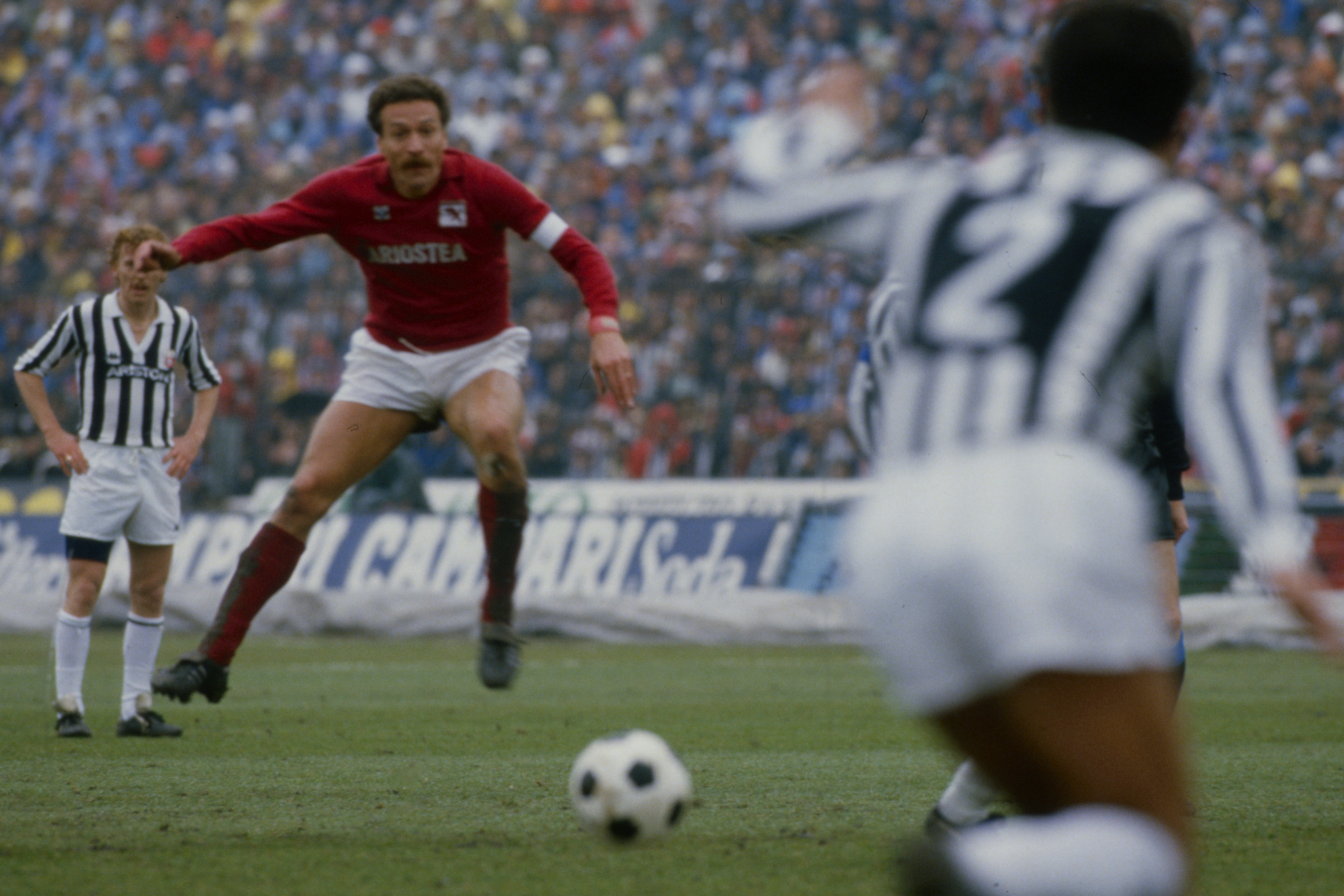
Picturing it is exactly what millions of radio listeners had to do, for nobody bar the 60,000 packed inside the Comunale saw the goals until the highlights were broadcast on La Domenica Sportiva, Italy’s version of Match of the Day, on Sunday night.
Choosing the radio over TV as the medium to follow football – or indeed any sport – nowadays may seem wonderfully anachronistic and romantic, like opting for a record player over Spotify.
But back in 1983, televised matches were a rarity in Italy, as indeed throughout the rest of Europe.
With Serie A fixtures still all played simultaneously on a Sunday rather than being fragmented over the weekend, radio was the only way to follow the action live.
Long before NFL RedZone revolutionised the playing field for “whip around” simulcast coverage, RAI radio’s iconic Tutto il Calcio Minuto per Minuto programme fulfilled the same role for Serie A followers from its inception in 1960.
As the self-explanatory title suggests, the show covered “all the football, minute by minute”, and as the race for the Scudetto entered the home stretch, the March 27 broadcast gravitated around two fixtures and two men – Enrico Ameri and Sandro Ciotti.
Two doyens of radio broadcasting in Italy, the pair had been the main commentators on Tutto il Calcio Minuto per Minuto from its debut 23 years earlier. Think Bryon Butler and Peter Jones on BBC or John Arlott and Brian Johnston on Test Match Special.
With his quintessentially pressing yet always pleasing cadence, Ameri was in Turin, where second-placed Juventus faced Torino, four points behind them in the standings.
Ciotti, meanwhile, would narrate events with his unmistakable croaky timbre from the Artemio Franchi, where sixth-placed Fiorentina welcomed league leaders Roma.
In the intervening four decades, the radio broadcast of the Turin derby has assumed mythical status. Every Torino fan has a story related to March 27.
There are those who despondently turned the radio off at 2-0, before turning it back on minutes later to hear Ameri announcing Torrisi’s winner.
There are those who listened on their journeys in cars or trains and entered a tunnel with Juventus leading 2-0 and only regained signal by the time the Granata were 3-2 up.
And then there are those who obstinately refused to turn the radio off even after Platini’s goal. They lived through something so surreal that they have never quite been able to explain it.
Six minutes had passed from the Frenchman’s goal by the time Galbiati won the ball off Scirea and galloped forward, exchanging passes with Bonesso on the edge of the Juventus area.
The latter appeared to be fouled, but referee Concetto Lo Bello allowed play to continue, the ball returning to Galbiati, who opened up his body and whipped the ball across the box towards the far post.
Roberto Bettega, playing in his final Derby della Mole, had allowed Dossena to steal a step on him, which was all the Torino midfielder needed to plant his header into the turf and across the goal, the ball nestling itself inside the far post past Zoff’s despairing dive.
Dossena’s momentum was such that it carried him over the advertising hoardings and towards the embrace of the Curva Maratona housing the Torino ultras.
There was something reminiscent of Bryan Robson at Manchester United about Dossena at Torino: a player who never thought twice about putting his body on the line for the greater cause, often with limited reward over his 241 appearances in all competitions for the Granata.
“We still believed we could win,” Dossena told La Gazzetta dello Sport five years ago.
“It might have seemed like a long shot, but like many of my teammates, I was a product of the youth system.
“We were brought up with a certain mindset, we had a track record of winning youth derbies. It wasn’t going to end like that.”
Toro had a pulse and Dossena’s goal was the opening salvo of the charge.
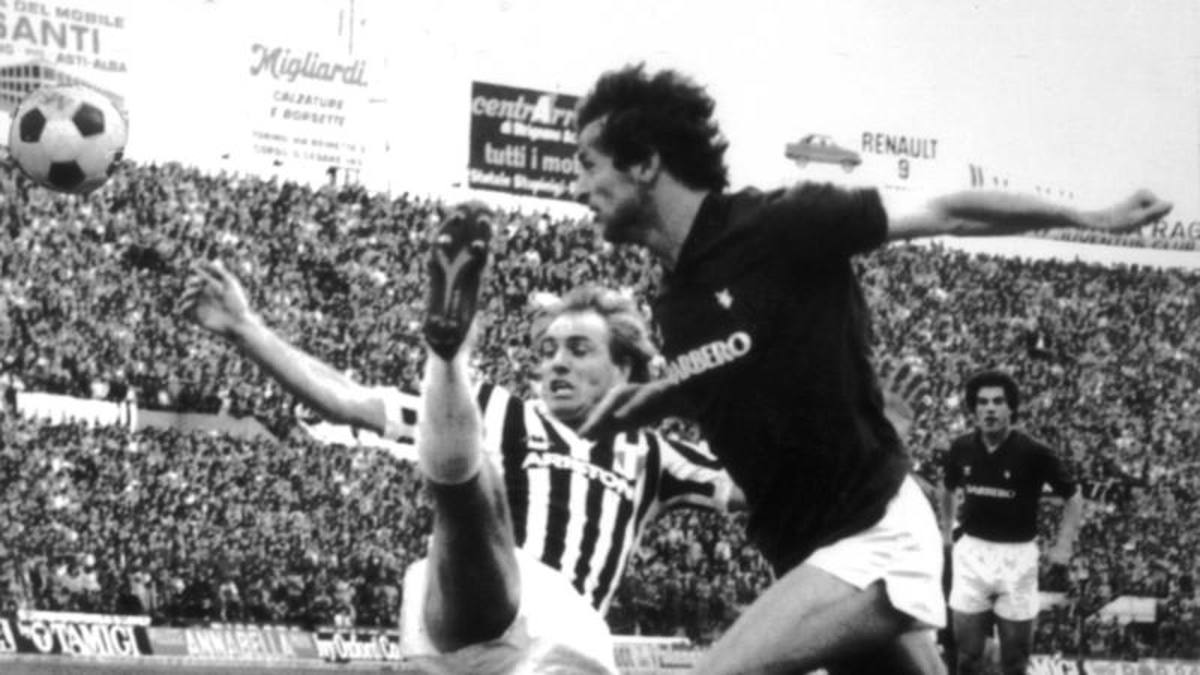
In Florence, meanwhile, goals from Roberto Pruzzo and a penalty from Herbert Prohaska had cancelled out Daniele Massaro’s ninth-minute opener.
As things stood, Roma remained three points clear of Juventus at the top of Serie A as the Tutto Il Calcio Minuto per Minuto broadcast switched to the Franchi.
Ciotti, however, managed barely five words before being interrupted by a huge roar. One which had originated 265 miles further north.
“Torino have done it again! They have equalised! It’s Bonesso who scored with a header, this time from a Beruatto cross on the left,” came the call from Ameri.
Dossena had surged forward and fed Beruatto on the left. In acres of space, the left-back had time to pick his target before delivering a cross in the box, but when it came, it was curling away from goal by the time it reached the penalty spot.
More worryingly for those of a Granata persuasion, the ball was dipping fast, making for a difficult volley. There was only one Toro shirt between five Juventus defenders.
It mattered not a jot; Bonesso, who had replaced Borghi 15 minutes earlier, ghosted in front of Sergio Brio and helped the ball on with his head past Zoff and into the same corner where Dossena scored a minute earlier.
Torino’s No16 ran towards the Curva Maratona, leaving everyone – photographers, teammates and ballboys – in his wake.
There’s something remarkably simple and beautifully visceral about Bonesso’s celebration, his right fist held aloft as he runs towards the Toro fans like a man who is struggling to process the enormity of it all.
The Curva Maratona had barely regained its breath after Dossena’s goal, and here it was collectively gasping for air again, trying to make sense of the past two minutes, much as Giovanni Trapattoni was in the Juventus dugout.
A curious thread linked Trapattoni and Bonesso, who were both born in Cusano Milanino on the outskirts of Milan.
The former was already in charge of Juventus when a 17-year-old Bonesso made his senior debut for Torino in 1978, three years after joining the Granata’s youth sector and serving as a ballboy during the Scudetto-winning season under Luigi Radice.
Decades after the derby, Bonesso met Trapattoni at a coaching clinic in Romagna and introduced himself to the former Juventus manager.
“He told me: ‘You’ve always pissed me off’,” he recalled.
“I had also scored in the derby the year before. And even in the youth teams, I always scored goals against Juve.”
With 72 minutes played, it was 2-2 as Ciotti took over the broadcast from Florence, noting news of Torino’s equaliser had been met with cheers from both Fiorentina and Roma fans. A louder cheer would soon swept through the Franchi as another deafening roar interrupted Ciotti with Ameri reclaiming the airwaves from the Comunale again.
“Torino are ahead. It’s 3-2,” he called. There’s a slightly uncertain note to his voice, almost as if his mind refused to comprehend what his eyes had just witnessed.
“Juventus have collapsed and conceded three times in three minutes.”
He needn’t have worried. Torino were indeed ahead and there was no stopping them now. Zaccarelli had spotted Van de Korput venturing forward down the right flank and had released him with a wonderful diagonal pass.
The Dutchman, Torino’s first foreign signing since Serie A re-opened the borders in 1980, brought the ball down before chipping in a cross back towards the penalty box, where Juventus’ World Cup-winning defence had seemingly forgotten Torrisi.
A Roma fan growing up, the right winger was a cult hero for the Curva Maratona with his naïve paintings reminiscent of the late Gigi Meroni, the dazzling winger who lived like an artist in his attic in Piazza Vittorio in Turin’s old town before his life was cut down in his prime.
Torrisi’s scissor-kick finish could have been a painting in itself, the ball bouncing just ahead of Zoff before finding the same corner of Toro’s previous two goals.
“Had the ball not hit the turf, Zoff would have saved it,” Torrisi said as he relived the moment years later. “That goal changed my life.”
From two goals down, Torino were 3-2 up in three minutes. The ball had been in play for 142 seconds. Pandemonium ensued, with Granata and Bianconeri briefly united in complete and utter disbelief.
“The light went off and nobody could find the switch,” was how Gentile laconically summed up the chaos.
It was a painful case of deja vu for Platini, who six months earlier had been part of a France team surrendering a two-goal lead against West Germany in the World Cup semi-final.
The shock was so raw for Cabrini that he refused to speak about the derby for years.
“You can’t try and explain those crazy five minutes rationally, it’s pointless,” was Brio’s eloquent verdict.
And what of Giampiero Boniperti?
True to his long-standing custom, the Juventus president had departed the Comunale at half-time before phoning Juve owner Gianni Agnelli from home. Neither could believe a word of what Ameri had just said on the radio.
At the Franchi, meanwhile, Fiorentina would equalise four minutes after Torrisi’s goal through a Carlo Ancelotti own goal to keep Roma’s gap over Juventus to four points.
Arithmetics still gave the Old Lady a chance, but Trapattoni did not.
“We can say goodbye to the Scudetto,” he thundered.
“My players were narcissists and their ratings in the paper was all they cared about.”
Trapattoni, of course, was right. Roma finished four points ahead of Juventus, who then lost the European Cup final against Hamburg to Felix Magath’s goal.
Torino won just another point from the remaining five fixtures as their season petered out to an eighth-place finish.
It mattered little to the Granata, who had played a major role in dethroning their arch-rivals.
“They were confident they would tear us apart,” Dossena quipped after the final whistle.
“They had underestimated Toro’s spirit.”
Related Articles
Related Articles
Football rivalries, world-class sport, surreal carnivals, and a tradition you won’t find anywhere else. Five events to catch in February.
In the latest edition of My Town, My Team, Napoli fan Alex told us why everybody should visit Naples at least once.
Sampdoria against Palermo at the Stadio Luigi Ferraris is just one of the standout matches to be shown live on Destination Calcio TV.


